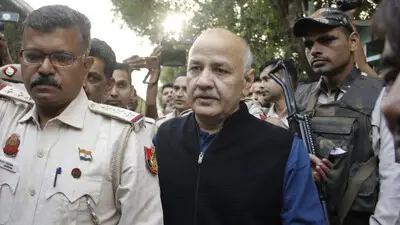Recommended Stories
However, Finance Minister Pranab Mukherjee, even while standing firm on the on the Vodafone tax issue, addressed foreign investors` concerns saying the retrospective tax amendment will not be used to reopen cases where the assessment orders have been finalised. Moving the Finance Bill, 2012 for consideration in the Lok Sabha, he raised the threshold limit for tax collection at source (TCS) by sellers on cash purchases of jewellery to Rs 5 lakh from Rs 2 lakh.
However, the threshold limit for TCS on cash purchase of bullion will be retained at Rs 2 lakh. Bullion will not include any coin or other articles weighing 10 gms or less. Jewellery traders all over the country had gone on a long strike in protest against the one per cent central excise on branded and unbranded jewellery and delegations had met Mukherjee and Congress President Sonia Gandhi demanding its withdrawal.
The withdrawl of the 1 per cent excise duty and some other changes in excise and customs duties would entail a revenue loss of Rs 600 crore, Central Board of Excise and Customs (CBEC) Chairman S K Goel said. In a bid to augment long-term low cost funds from abroad for the infrastructure sector, Mukherjee extended the lower rate of withholding tax of 5 per cent for funding specific sectors to foreign borrowings to all businesses.
This lower rate of tax will also be available for funds raised through long term infrastructure bonds in addition to borrowing under a loan agreement. On General Anti-Avoidance Rules (GAAR) provisions that have been widely opposed by the foreign institutional investors (FIIs), the Minister announced deferring its implementation by one year. They will now apply to income of financial year 2013-14 and subsequent years.
Touching on another controversial proposal, the Minister held firm on amending the Income Tax Act with retrospective effect to tax capital gains on sale of assets in India through indirect transfers abroad, an apparent reference to Vodafone-type deals. However, he gave an assurance that clarificatory amendments would not override Double Taxation Avoidance Agreement (DTAA).
The Minister said the issue has been debated intensely in the country and outside and he would like to confirm that clarificatory amendments do not override the provisions of the Double Taxation Avoidance Agreements (DTAAs) with 82 countries. "It would impact those cases where the transaction has been routed through low tax or no tax countries with whom India does not have a DTAA", Mukherjee said.
In another message aimed at mollifying business concerns, he said the retrospective amendments now under the consideration of Parliament will not be used to reopen any cases where assessment orders have already been finalised. "I have asked the Central Board of Direct Taxes (CBDT) to issue a policy circular to clearly state this position after the passage of the Finance Bill," he said. On the GAAR provisions, Mukherjee also provided some sops when he said it would be amended to remove the onus of proof entirely from the tax payer to the revenue department before any action can be initiated under it.
The government would also induct an independent member in the GAAR approving panel to ensure objectivity and transparency. One member of the panel would now be an officer of the level of joint secretary or above from the Law Ministry. It would also provide that any tax payer, resident or non-resident, can approach the Authority for Advance Ruling (AAR) for a ruling as to whether an arrangement to be undertaken is permissible or not under the GAAR provisions.












